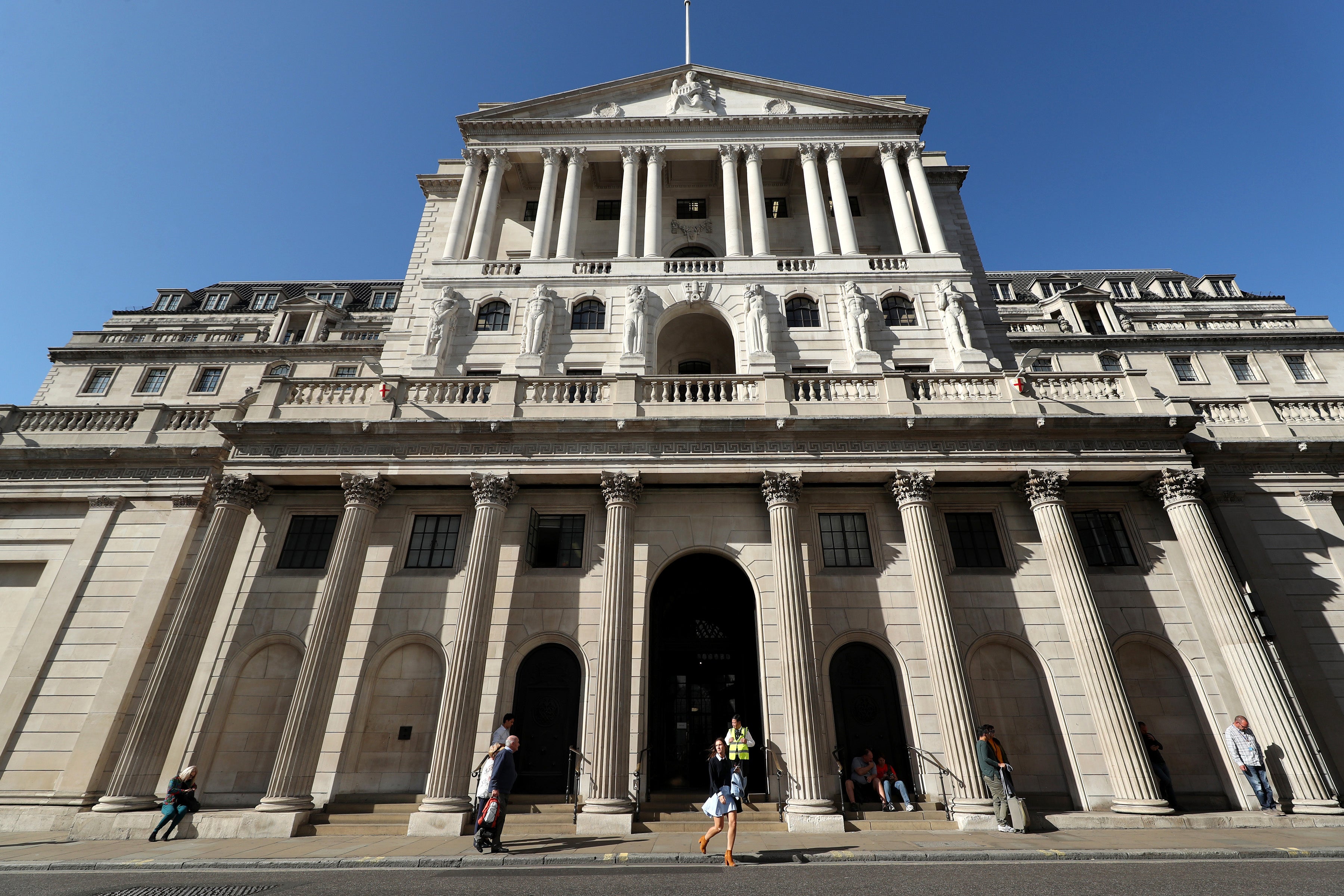Companies at risk from Covid lifeline loans, Bank of England warns
Around 1.7 million companies took out loans under three Government-backed schemes.

Your support helps us to tell the story
From reproductive rights to climate change to Big Tech, The Independent is on the ground when the story is developing. Whether it's investigating the financials of Elon Musk's pro-Trump PAC or producing our latest documentary, 'The A Word', which shines a light on the American women fighting for reproductive rights, we know how important it is to parse out the facts from the messaging.
At such a critical moment in US history, we need reporters on the ground. Your donation allows us to keep sending journalists to speak to both sides of the story.
The Independent is trusted by Americans across the entire political spectrum. And unlike many other quality news outlets, we choose not to lock Americans out of our reporting and analysis with paywalls. We believe quality journalism should be available to everyone, paid for by those who can afford it.
Your support makes all the difference.Many companies that took out emergency loans during the Covid-19 pandemic are now at risk of collapse because of those same loans, the Bank of England has warned.
Companies across the UK which before Covid would have been turned down for loans were able to tap into Government-backed schemes during pandemic times.
Now, many of these are facing loan bills that they might be unable to pay off.
On Friday, the Bank of England warned that higher borrowing during the pandemic has likely put more businesses at risk.
“The increase in debt – though moderate in aggregate – has likely led to increases in the number and scale of more vulnerable businesses,” it said.
“As the economy recovers and Government support, including restrictions on winding up orders, falls away, business insolvencies are expected to increase from historically low levels,” it added.
Around 1.7 million companies borrowed money under three emergency loan schemes that were launched last year.
Many of them were tiny companies that had not borrowed before, and desperately indeed money to stave off immediate collapse.
Though the terms of the loans are generous – the interest on Bounce Back Loans, which were the most common, is only 2.5% – the businesses still have to pay back their banks.
They have up to 10 years to do so and can request several periods of lower payments.
The proportion of small and medium sized firms that see 15% or more of the money that comes in through the door go straight out to cover debt payments has increased sixfold since before the pandemic, the Bank said.
Before Covid, 3% of companies reported paying 15% of their inflows, now that has risen to 18%.
In its financial stability report, the Bank of England also said that the outlook for the economy is still “uncertain”.
Recently the pace of recovery from the pandemic has slowed, and pressures from inflation have risen.
Many companies have reported increases in their costs, including for materials and staff, but also utilities. Business Secretary Kwasi Kwarteng is meeting with business leaders on Friday amid a big spike in energy prices which has put their production lines under pressure.
The bank’s Financial Policy Committee is keeping the so-called countercyclical capital buffer – reserves that banks must have in store to release during a downturn – at zero at least until December 2021.